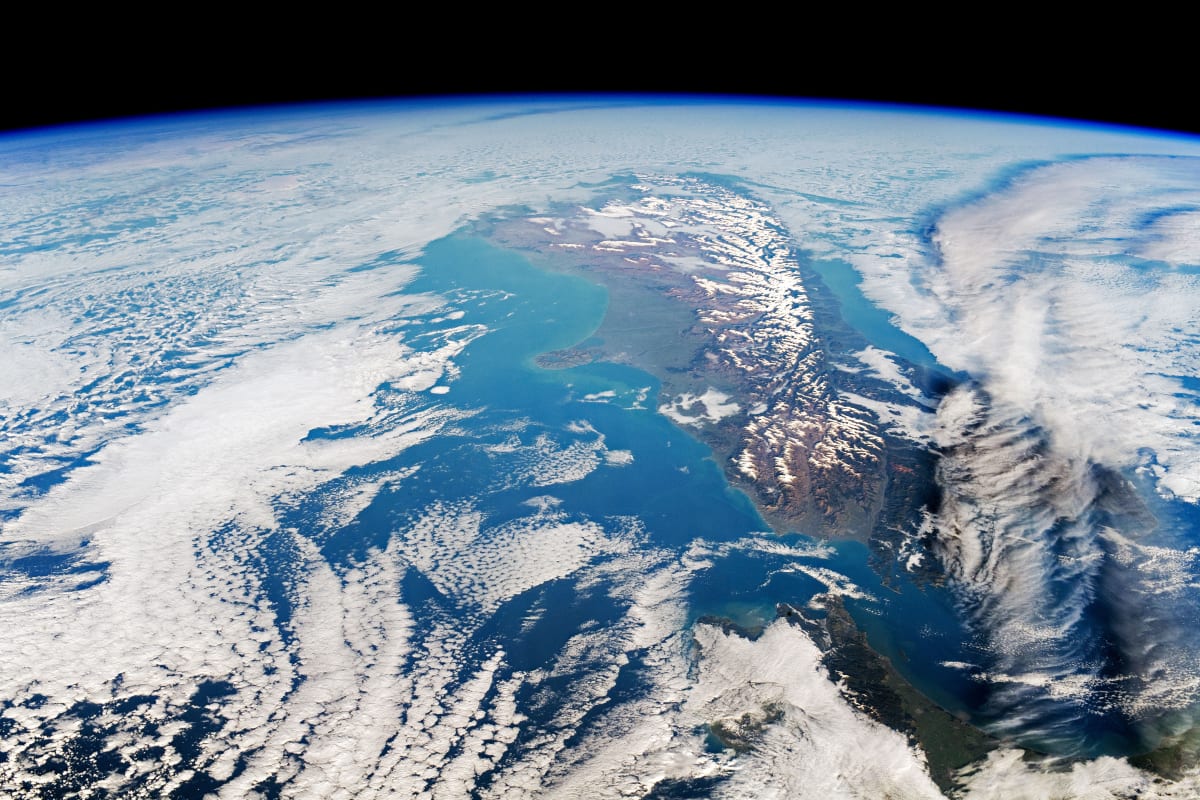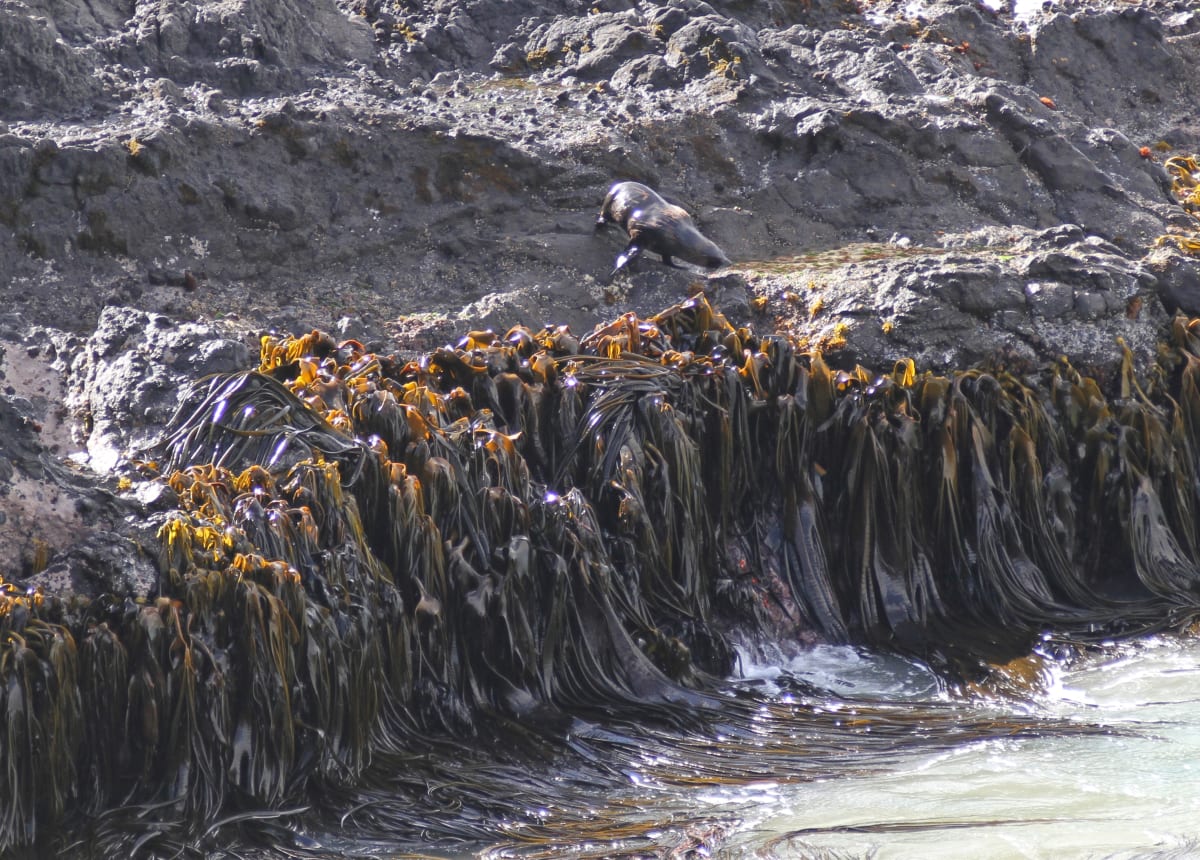
A panel of global climate experts finds that human health and natural ecosystems are under threat and we have little time to adapt to the impacts of climate change, Marc Daalder reports
Climate change is already harming human health and irreversibly damaging biodiversity and ecosystem stability around the world.
The latest report from the Intergovernmental Panel on Climate Change (IPCC) traversed recent research on the impacts of climate change on the natural and human worlds and offered up potential options for adapting to those risks.
It found that "the cumulative scientific evidence is unequivocal: Climate change is a threat to human wellbeing and planetary health. Any further delay in concerted anticipatory global action on adaption and mitigation will miss a brief and rapidly closing window of opportunity to secure a liveable and sustainable future for all."
Climate impacts 'widespread, pervasive'
The IPCC concluded with certainty that the damage to nature and people observed over recent years goes "beyond natural climate variability" and is due to "human-induced climate change, including more frequent and intense extreme events".
That damage has been felt across the board.
"Widespread, pervasive impacts to ecosystems, people, settlements, and infrastructure have resulted from observed increases in the frequency and intensity of climate and weather extremes, including hot extremes on land and in the ocean, heavy precipitation events, drought and fire weather," the IPCC found.
The urban, built environment has been hammered by increasingly frequent and intense extreme heat and flood events. These risks also cascade into one another - sea level rise will combine with more intense rain and storm surges to create "compound flood risks". Hotter summers will render both the natural and built worlds more vulnerable to wildfires. Extreme heat can also reduce soil moisture, making landslides more likely in the event of a later flood.
As the world warms and sea levels rise, urban vulnerability to climate impacts will only increase. A 15 centimetre sea level rise by the end of the century would increase the number of people exposed to one-in-100 year coastal floods by 20 percent. A 75 centimetre rise would instead double the at-risk population and a 1.4 metre rise would triple it. Under a medium-emissions scenario, between $14.8 and $23.8 trillion in global assets would reside in one-in-100 year coastal floodplains.
Climate change is also already damaging physical and mental health, the IPCC reported.
"In all regions extreme heat events have resulted in human mortality and morbidity." The ranges of insect-borne illnesses - especially dengue fever - are expanding. Animal and human diseases, including ones that can jump between the two, are emerging in new places. Smoke from wildfires as well as particulates from the burning of fossil fuels are causing heart and respiratory disease.

The IPCC said it had high confidence that "climate change and related extreme events will significantly increase ill health and premature deaths from the near- to long-term". More and more people will be exposed to heatwaves. Mental health troubles are also "expected to increase under further global warming in all assessed regions, particularly for children, adolescents, elderly and those with underlying health conditions".
Food insecurity will be worsened by climate change as well, fuelling malnutrition.
These impacts on human health and wellbeing are "concentrated amongst the economically and socially marginalised," the IPCC said. "Climate change is contributing to humanitarian crises", with small island states "disproportionately affected" and Africa and Central and South America particularly vulnerable to food insecurity issues. In the second half of the 21st Century, "displacement will increase with intensification of heavy precipitation and associated flooding, tropical cyclones, drought and, increasingly, sea level rise".
Natural world at risk
The natural world is equally threatened by the impacts of climate change, with the danger increasing alongside warming. Even halting warming at 1.5 degrees above preindustrial levels would see 3 to 14 percent of land species assessed "likely face very high risk of extinction".
"Climate change has caused substantial damages, and increasingly irreversible losses, in terrestrial, freshwater and coastal and open ocean marine ecosystems". These impacts "are larger than estimated in previous assessments" and involve "widespread deterioration of ecosystem structure and function, resilience and natural adaptive capacity".
Half of the species assessed by the IPCC have moved closer to the poles. Among land species, they also moved to higher elevations.
"Hundreds of local losses of species have been driven by increases in the magnitude of heat extremes, as well as mass mortality events on land and in the ocean and loss of kelp forests."
In material accompanying the report, the IPCC wrote that "all life on Earth – from ecosystems to human civilization – is vulnerable to a changing climate".
One crucial finding of the IPCC report, which was only traversed briefly in the summary for policymakers available to Newsroom, was what happens if global temperatures temporarily surpass 1.5 degrees before returning below that threshold by the end of the century.
This is called overshoot and is likely to occur even in some of the low emissions scenarios entertained by the IPCC. By most projections, the world will cross the 1.5 degree threshold (briefly or permanently) at some point in the 2030s. Low emissions scenarios see temperatures dropping below 1.5 degrees around the 2070s.
According to the IPCC, overshoot would see "many human and natural systems ... face additional severe risks, compared to remaining below 1.5 degrees. Depending on the magnitude and duration of overshoot, some impacts will cause release of additional greenhouse gases and some will be irreversible, even if global warming is reduced."
Natural ecosystems are particularly vulnerable, with overshoot resulting in "irreversible impacts on certain ecosystems with low resilience, such as polar, mountain and coastal ecosystems, impacted by ice sheet, glacier melt, or by accelerating and higher committed sea level rise". Humans will also face greater consequences.
The "risk of severe impacts increases with every additional increment of global warming during overshoot. In high-carbon ecosystems (currently storing 3000 to 4000 [billion tonnes of carbon]) such impacts are already observed and are projected to increase with every additional increment of global warming, such as increased wildfires, mass mortality of trees, drying of peatlands, and thawing of permafrost, weakening natural land carbon sinks and increasing releases of greenhouse gases."
This would make reducing global temperatures back below 1.5 degrees even more challenging than it otherwise would be.
Adapting in New Zealand
While the worst impacts will be felt by the most marginalised people in the most vulnerable countries, the report found that Australia and New Zealand also faced several unique challenges as a result of climate change.
"Extreme events such as heatwaves, droughts, floods, storms and fires have caused deaths and injuries, and affected many households, communities and businesses via impacts on ecosystems, critical infrastructure, essential services, food production, the national economy, valued places and employment," a fact sheet for the region stated.
New Zealand's kelp forests, which are foundational for marine biodiversity, could be lost to "ocean warming, marine heatwaves and overgrazing by climate-driven range extensions of herbivore fish and urchins".

Both natural and built systems in coastal areas are vulnerable to sea level rise and flooding. We can also expect to face "cascading, compounding and aggregate impacts on cities, settlements, infrastructure, supply chains and services due to wildfires, floods, droughts, heatwaves, storms and sea level rise".
The north and east of the country will be exposed to more extreme fire weather and the northern parts of the country will also be subject to longer, more frequent and more intense droughts.
Across both Australia and New Zealand, the IPCC had high or very high confidence that agriculture, flood or storm-induced damage in coastal areas, damage to infrastructure and damage to key economic sectors will all undergo "increasing adverse impacts". There was medium confidence that fisheries yields and aquaculture production will be negatively hit and that heat, malnutrition and mental health challenges will negatively affect health and wellbeing.
Land and ocean species will experience changes in their ecosystems and some species in both environments will shift the ranges they live in.
New Zealand and Australia both showed progress in adapting to the impacts of climate change, although there was room for improvement. The IPCC found this was the case globally as well - since the last assessment report, adaptation efforts have progressed. At least 170 countries and many cities included adaptation in climate policy and urban planning.
However, it found that "adaptation gaps exist between current levels of adaptation and levels needed to respond to impacts and reduce climate risks".
This is particularly the case in developing nations and among marginalised populations within developed countries.
Certain impacts are uniquely difficult to plan for. "Sea level rise poses a distinctive and severe adaptation challenge as it implies dealing with slow onset changes and increased frequency and magnitude of extreme sea level events which will escalate in the coming decades," the report found.
There are also limits to how much adaptation can blunt the impacts of climate change. Some of these are "soft" barriers, like financing or political commitment. Others are "hard" limits, in which current technologies and policies aren't able to completely ameliorate expected impacts.
Natural environments in particular "are near the hard limits of their natural adaptation capacity and additional systems will reach limits with increasing global warming. Ecosystems already reaching or surpassing hard adaptation limits include some warm water coral reefs, some coastal wetlands, some rainforests and some polar and mountain ecosystems."
The IPCC wrote in material accompanying the release of the report that "targeting a climate resilient, sustainable world involves fundamental changes to how society functions, including changes to underlying values, worldviews, ideologies, social structures, political and economic systems, and power relationships. This may feel overwhelming at first, but the world is changing anyway and will continue to change."
Climate Change Minister James Shaw welcomed the release of the report and agreed that it heralded big changes to protect against climate disasters.
"Put simply, we need to see a huge step change in our approach to climate adaptation in Aotearoa – and later this year the Government will consult New Zealanders on a national adaptation plan to do just that."







